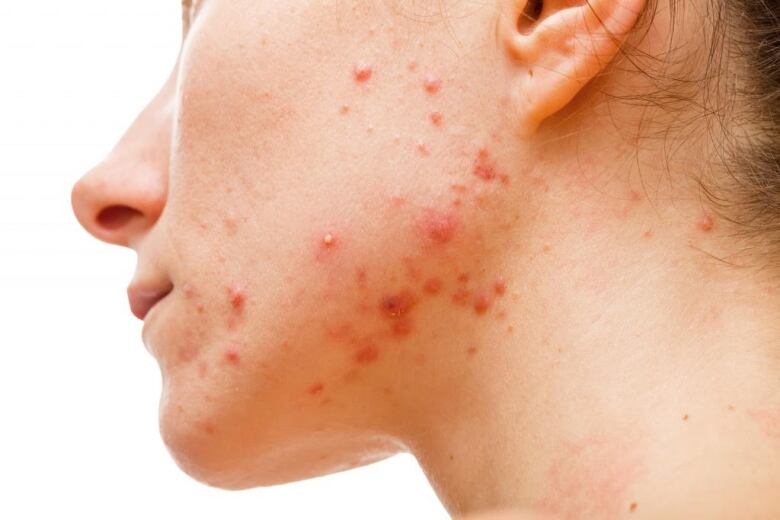Stigma of acne worse in the age of selfies, experts say

In the social media age now upon us, the psychological scars of acne can be worse than the physical ones, says the Acne and Rosacea Society of Canada.
- Acne may be worse with high vitamin levels
- Socality Barbie mocks Instagram hipsters with photos of her #blessed life
Doctor Jerry Tan, who is a member of the society, says young people in this age of selfies and social media are more self-conscious about their looks than ever before.
Everything on Facebook, Instagram and Twitter is about posting and sharing selfies, photos and videos and "your face is prominent," Tan said.
"The face is such a socially visible site, it leads to embarrassment, becoming self-conscious, sometimes social avoidance and most importantly and probably under-recognized in a lot of patients, it can lead to depression," said Tan, a dermatologist who also teaches at the Windsor campus of the Schulich School of Medicine.
For teens, acne can affect the development of self-image and assertiveness, factors that are important in forming friendships and dating, the association says.

Having acne has been associated with teasing, bullying and eating disorders, Tan added.
"There are lots of issues that have developed because of the way we currently communicate with each other. A lot of the social media is based on faces, I mean Facebook. It becomes a real issue with socialization, particularly in a time of their life where they are maturing differentially, at different speeds," Tan said.
'They sometimes lose hope'
The Acne and Rosacea Society of Canada has spent time researching both the physical and emotional scarring of acne.
Acne affects 90 per cent of teens and the rate of depression due to acne is 10 per cent, according to the Society.
"Every morning they have to wake up to a face full of acne or acne spots on their body and they're looking for a way to stop this over time. In the absence of that type of hope they sometimes lose hope," Tan said.
Tan said parents should keep a close eye on their kids.
"If they get progressively more withdrawn and quiet and maybe exhibit signs of not being interested in their usual activities, those are sometimes markers for depression," Tan said. "It may or may not be related to acne, but be on the lookout for it."
Canada's first Acne Awareness Week is taking place September 14-20. Some ways to feel better about acne are:
- Treatment: Seek treatment from a family doctor, dermatologist or pharmacist.
- Support: Enlist the support of friends and family. Let them know how you feel and how they can help.
- Camouflage: Find out how to hide acne by using cover-up. While women are more comfortable with this, men can do the same.
- Skin care: Follow a good skin care routine to maintain health skin.
- Be active: Research shows exercise promotes a positive attitude and feeling of well-being. Be social. Make an effort to visit with friends and attend social events.












_(720p).jpg)


 OFFICIAL HD MUSIC VIDEO.jpg)
.jpg)



























































































